ESSENTIAL RECOMMENDATIONS
ASEAN Economic Cooperation Forum and Emerging Economies with the Russian Federation in the New Context: Issues and Prospects
Today, international economic cooperation between countries faces significant challenges. The trade volume between Russia and Vietnam, as well as between Russia and ASEAN, constitutes less than 1% of bilateral trade. The sanctions imposed on Russia by Western nations continue to greatly affect trade with BRICS and ASEAN. Russia is also experiencing geopolitical tensions due to its military conflict with Ukraine, which hampers its collaborative resources with other countries and presents numerous unfavorable factors that cannot be resolved quickly...
Context
Today, international economic cooperation between countries faces significant challenges. The trade volume between Russia and Vietnam, as well as between Russia and ASEAN, constitutes less than 1% of bilateral trade. The sanctions imposed on Russia by Western nations continue to greatly affect trade with BRICS and ASEAN. Russia is also experiencing geopolitical tensions due to its military conflict with Ukraine, which hampers its collaborative resources with other countries and presents numerous unfavorable factors that cannot be resolved quickly. The exclusion of Russia from the Society for Worldwide Interbank Financial Telecommunication (SWIFT) has created significant difficulties for businesses exporting goods to Russia, limiting payment options from Russian clients. Additionally, Western sanctions have impacted logistics operations, making it difficult to transport goods into Russia.
Impact of Sanctions on the Russian Economy
Firstly, discussions reveal the economic impact of sanctions on Russia, including a severe decline in revenue from oil and gas exports, alongside labor shortages and inflation. The Russian ruble has depreciated against the USD and EUR, resulting in decreased purchasing power and increased import costs. To date, Russia has implemented various policies to mitigate the risks from US and allied sanctions. In the economic sphere, Russia has adopted measures to lessen the impact of sanctions, such as strict capital controls, increasing interest rates, implementing new taxes, and transitioning to the currencies of friendly nations. Western sanctions on Russia are expected to remain effective and worsen over time.
Declining Trade Volume Between Russia – Vietnam and Russia – ASEAN
Statistics show that the value of trade between Vietnam and Russia reached USD 7.1 billion in 2021, but dropped to approximately USD 3.6 billion in 2022. In 2023, the total bilateral trade volume between Vietnam and the Russian Federation remained at USD 3.6 billion, a mere 2.3% increase compared to 2022. This is a very low growth rate since the signing of the Free Trade Agreement (FTA) between Vietnam and the Eurasian Economic Union. However, in Q1 of 2024, trade between the two countries rebounded strongly, reaching USD 1.1 billion, a 52% increase compared to the same period in 2023.
Vietnam primarily exports to Russia items such as phones and components, computers, electronics, agricultural products, seafood, textiles, and leather goods. Conversely, Vietnam imports from Russia steel, coal, fertilizers, petroleum products, chemicals, plastics, wood and wood products, wheat, and meat.
Significant Potential in Vietnam – Russia Trade
The Free Trade Agreement between the Eurasian Economic Union (EAEU) and Vietnam has increased foreign direct investment (FDI) flows between Russia and Vietnam. Various investment indicators suggest that the investment relationship between Russia and Vietnam has not yet met expectations, despite an increase from 2016 to 2018 after the FTA was signed. These indicators show that while investment cooperation has potential, it remains weak due to issues such as COVID-19 and Western economic sanctions.
Positive Trends in Russia - ASEAN Relations
According to AseanStats, the total trade volume between the Russian Federation and ASEAN reached USD 15.9 billion in 2023, a 3.5% increase compared to 2022. ASEAN tourism has also seen a significant recovery, attracting 101.9 million visitors in 2023, an increase of 136.2% compared to 2022. In 2022, ASEAN welcomed 43.1 million tourists, including 620,000 Russian visitors. It is estimated that around 2 million Russians will travel to ASEAN countries in 2023, with popular destinations being Thailand, Indonesia, and Vietnam.
Although there has been notable growth recently, economic and trade cooperation between ASEAN countries and the Russian Federation still has considerable growth potential. The 30th ASEAN Economic Ministers' Retreat was held from March 8-9, 2024, in Laos. At this meeting, ministers from member countries agreed on the theme "ASEAN: Promoting Connectivity and Resilience," focusing on three main orientations: recovering and connecting economies; creating an inclusive and sustainable future; and transitioning towards a digital future. The meeting also identified annual priorities for 2024 in the economic channel, focusing on areas such as goods trade, trade facilitation, customs, services trade, movement of people, investment, finance, competition, intellectual property, e-commerce, and micro, small, and medium enterprises. Implementing these solutions alongside Russia's eastward policy will undoubtedly enhance ASEAN-Russia cooperation.
Recommendations and Proposals
- Enhance trade and investment promotion
- Review trade and investment barriers between the two countries
- Establish a Vietnam-Russia artificial intelligence center
- Strengthen Vietnam-Russia academic exchanges.
OTHERS
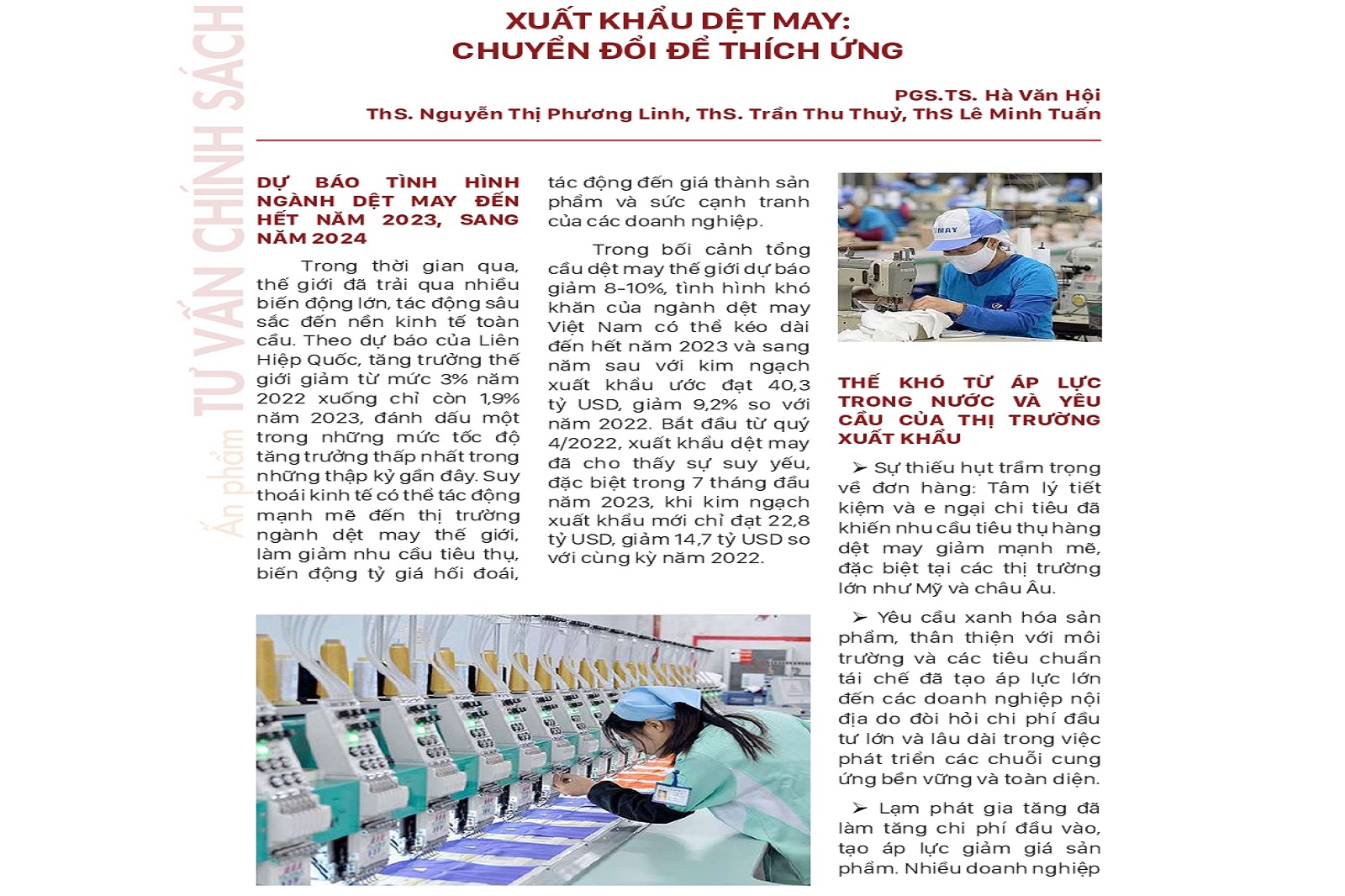
Textile and Garment Exports: Transforming to Adapt
Recently, the world has experienced significant upheavals that have profoundly impacted the global economy. According to UN forecasts, global growth is ...
More details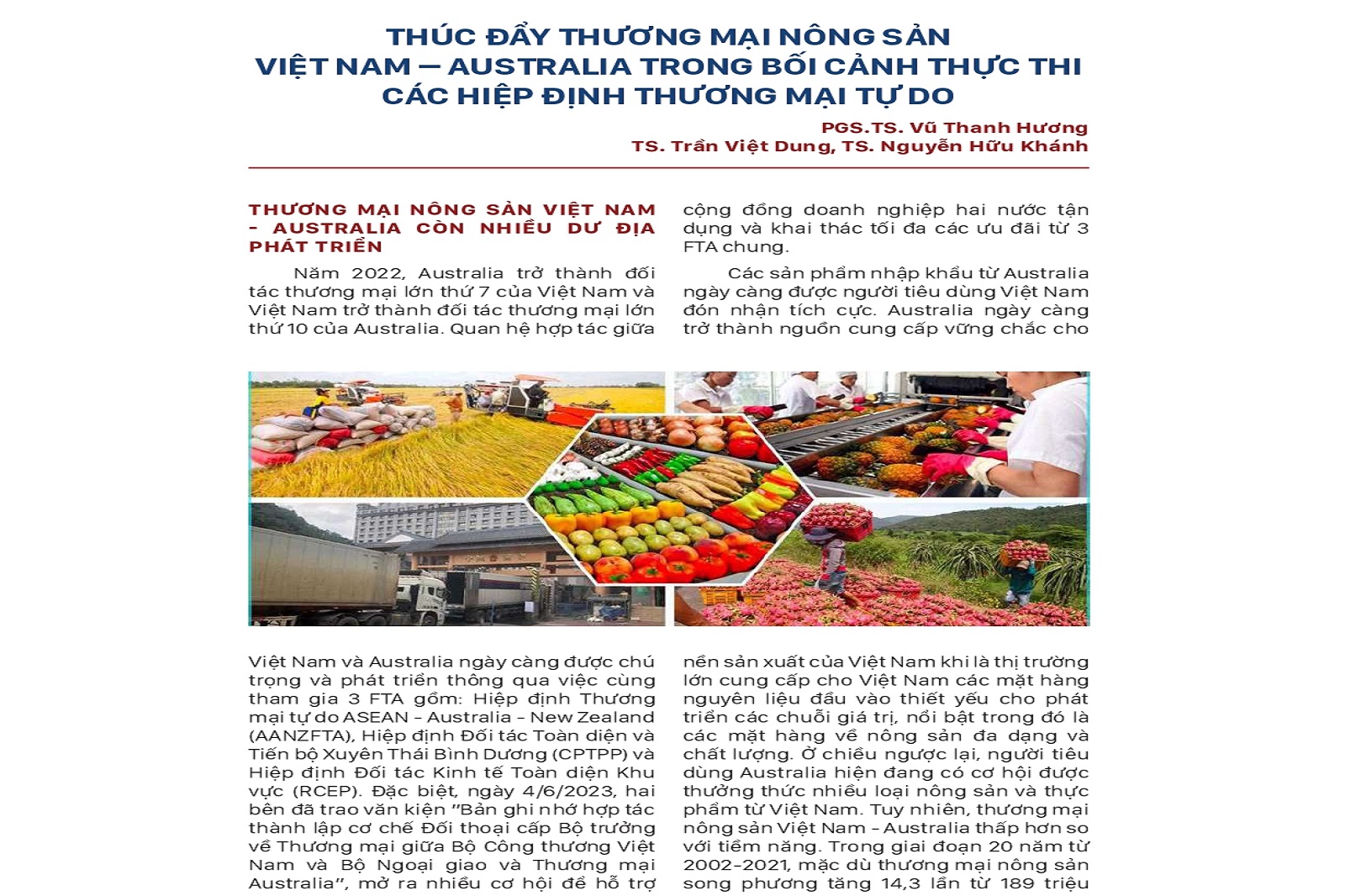
Promoting Vietnam-Australia Agricultural Trade in the Context of Implementing Free Trade Agreements
Australian imports are increasingly well-received by Vietnamese consumers. Australia is becoming a reliable supplier for Vietnam's production needs, providing ...
More details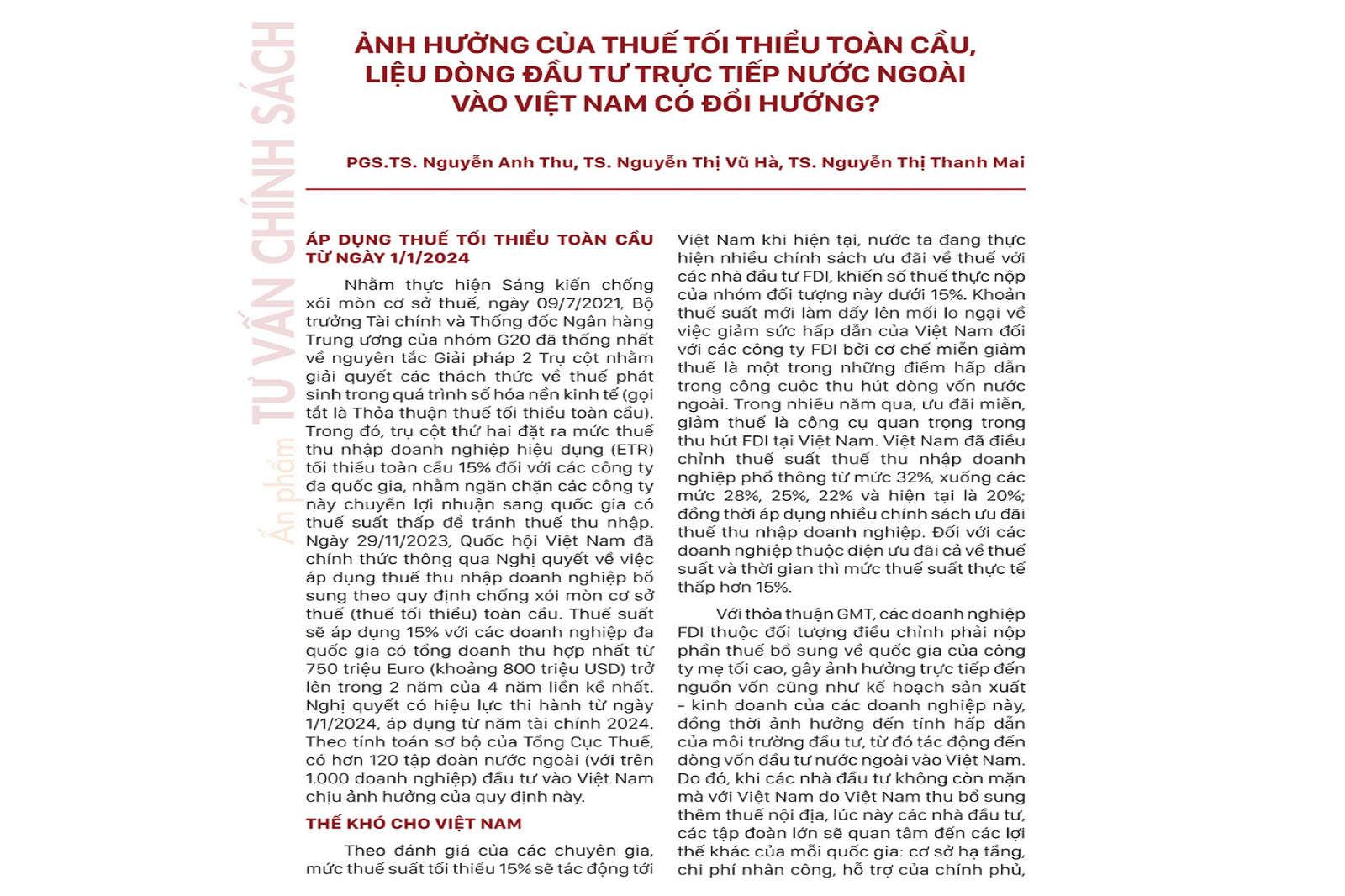
Will the Implementation of Global Minimum Tax Redirect Foreign Direct Investment into Vietnam?
To combat base erosion and profit shifting, on July 9, 2021, finance ministers and central bank governors of the G20 agreed on the principles of the Two-Pillar ...
More details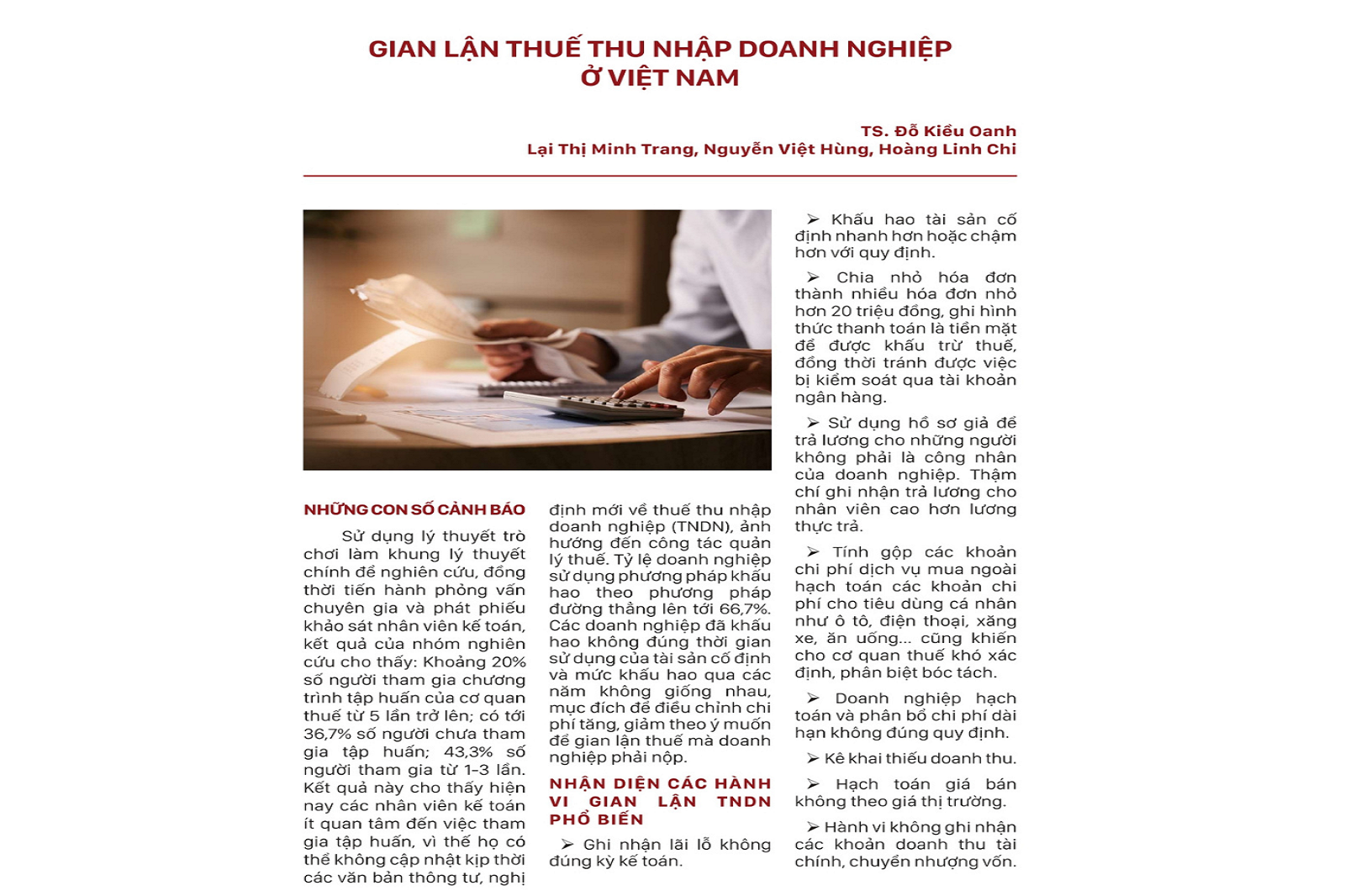
Corporate Income Tax Fraud in Vietnam
Using game theory as the main theoretical framework for the study, along with expert interviews and surveys of accountants, the research team found that ...
More details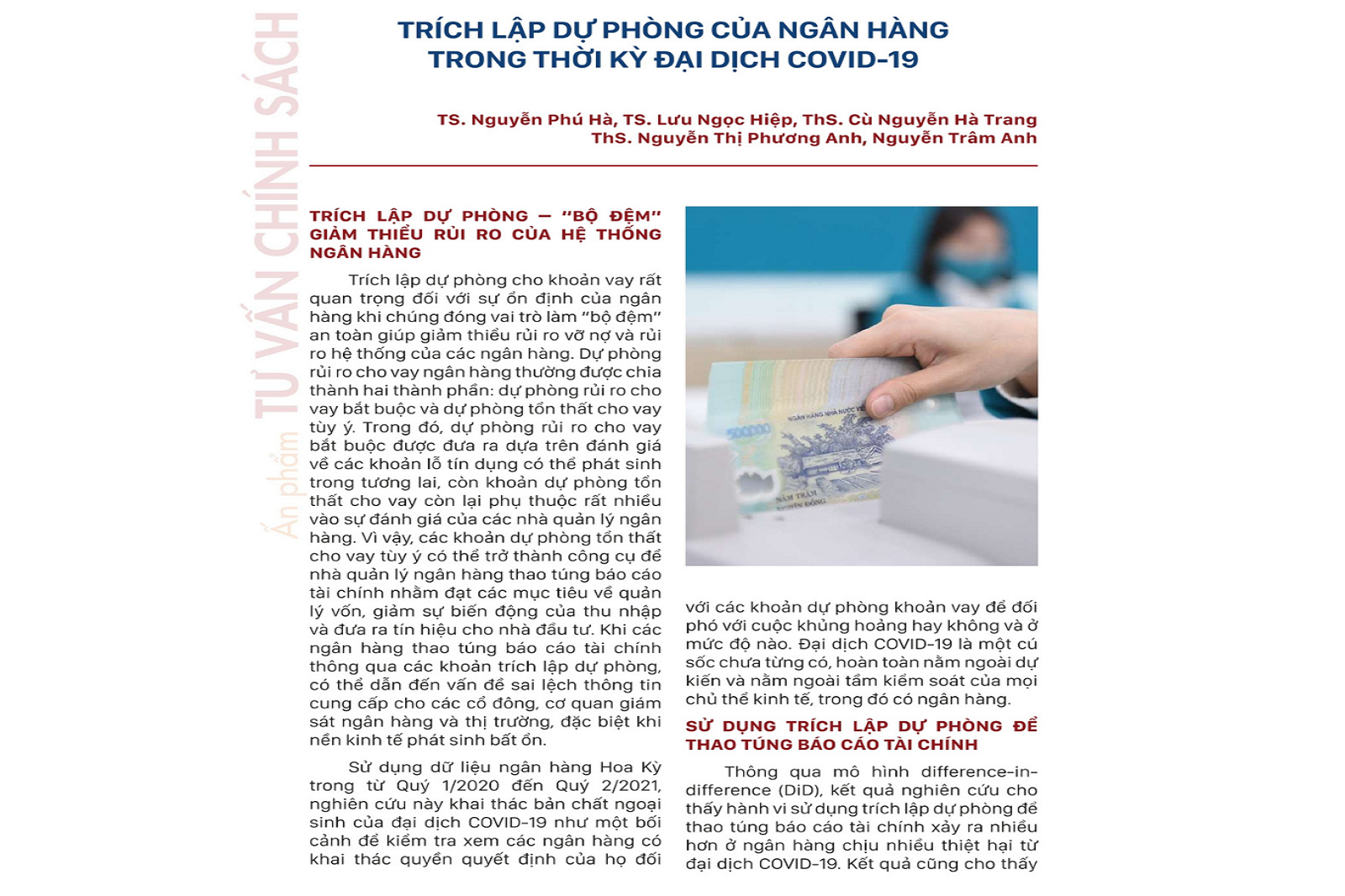
Provisioning by Banks During the COVID-19 Pandemic
Provisions for loans are crucial for the stability of banks as they serve as a safety "buffer" to mitigate the risks of defaults and systemic risks in ...
More details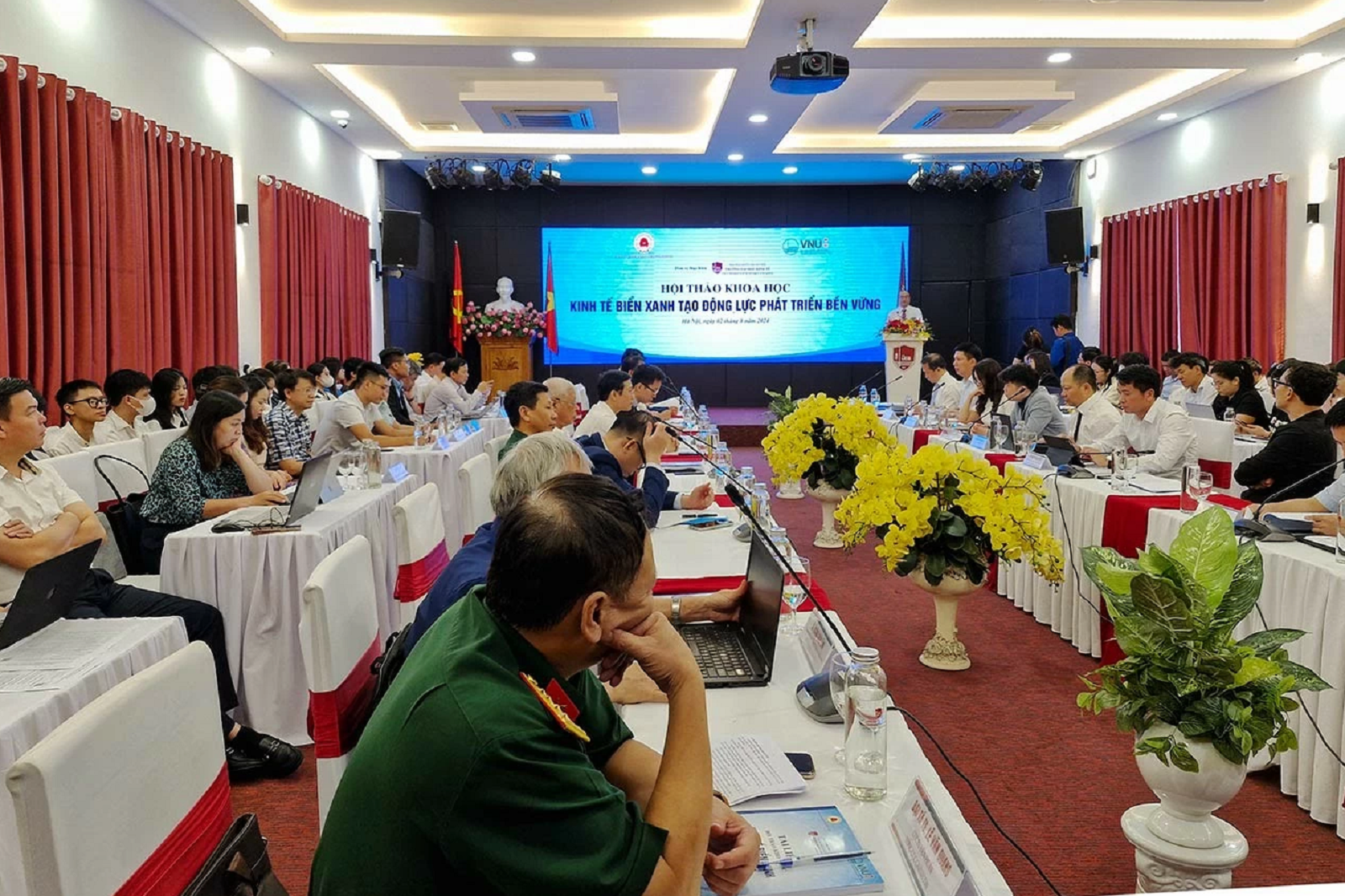
Blue Economy as a Driver for Sustainable Development
The green transition and the development of a blue economy are not only global trends but also consistent policies of the Party and the State of Vietnam, ...
More details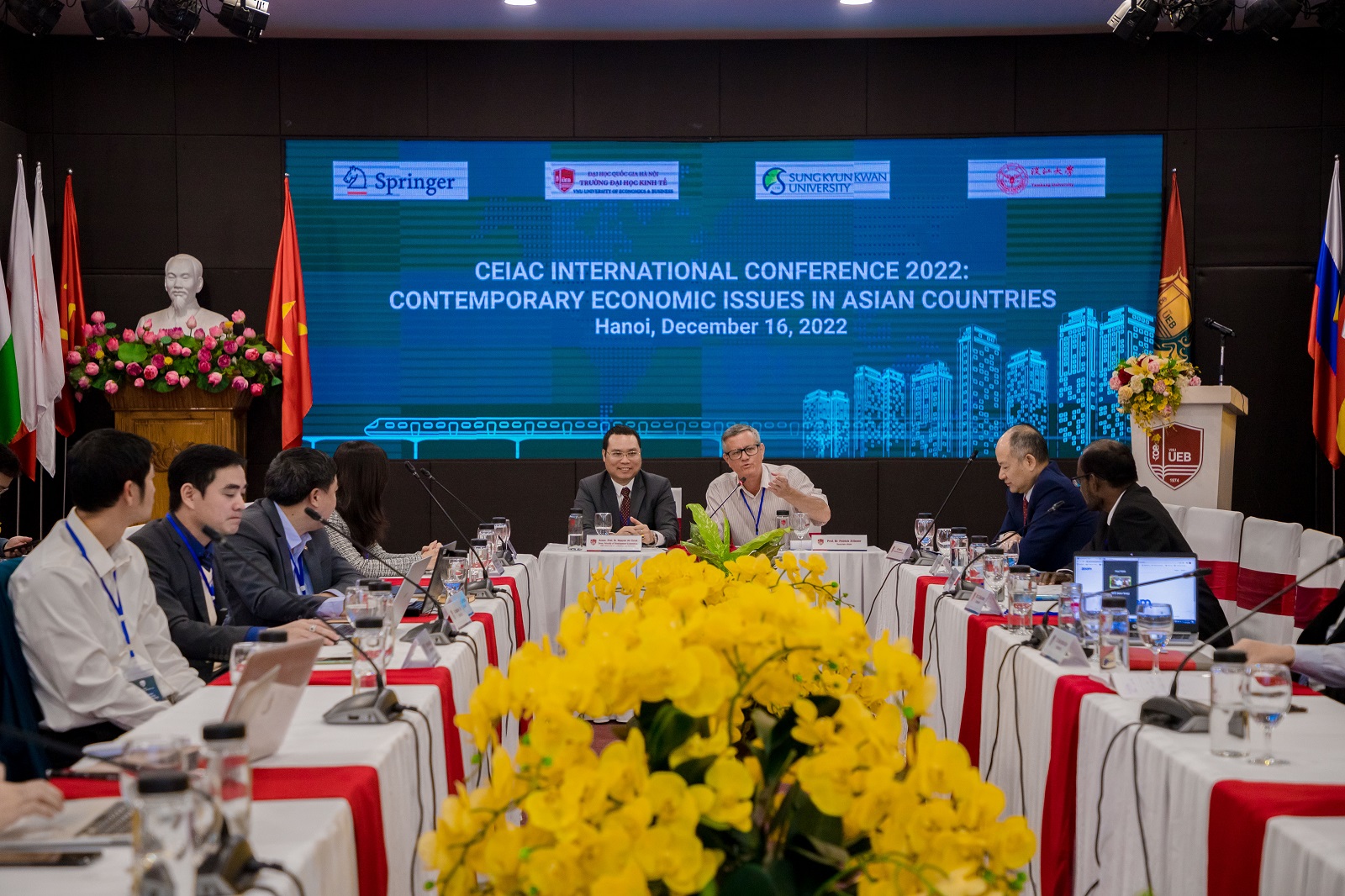
Contemporary economic issues in Asian countries
On December 16, 2022, UEB organized the international workshop “Contemporary Economic Issues in Asian Countries” (CEIAC 2022) to enhance scholarly and ...
More details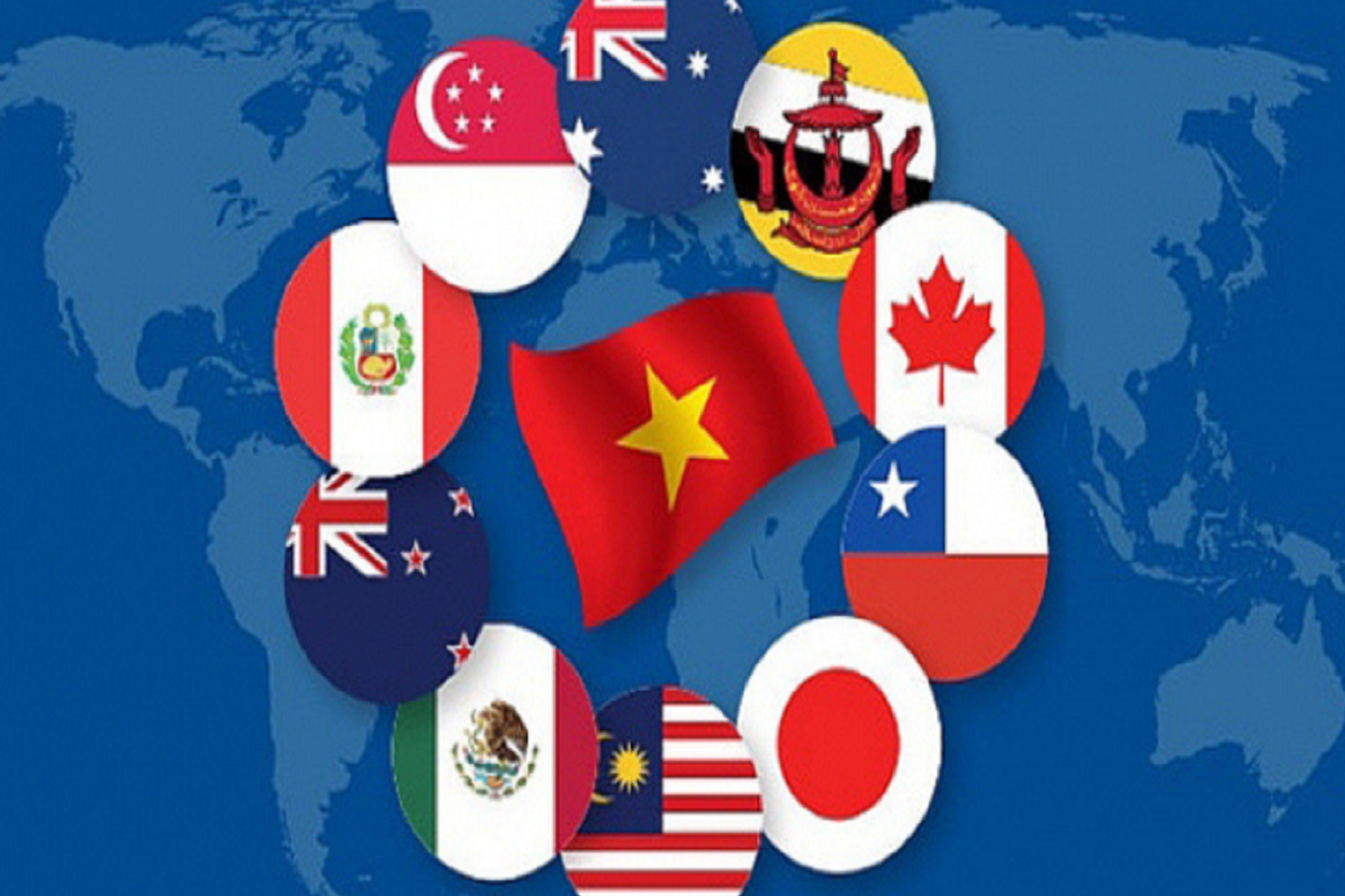
Regional economic integration and its impact on businesses
Research revealed how free trade and competition enhance the efficiency of businesses and economies. Import competition drives firms to increase productivity, ...
More details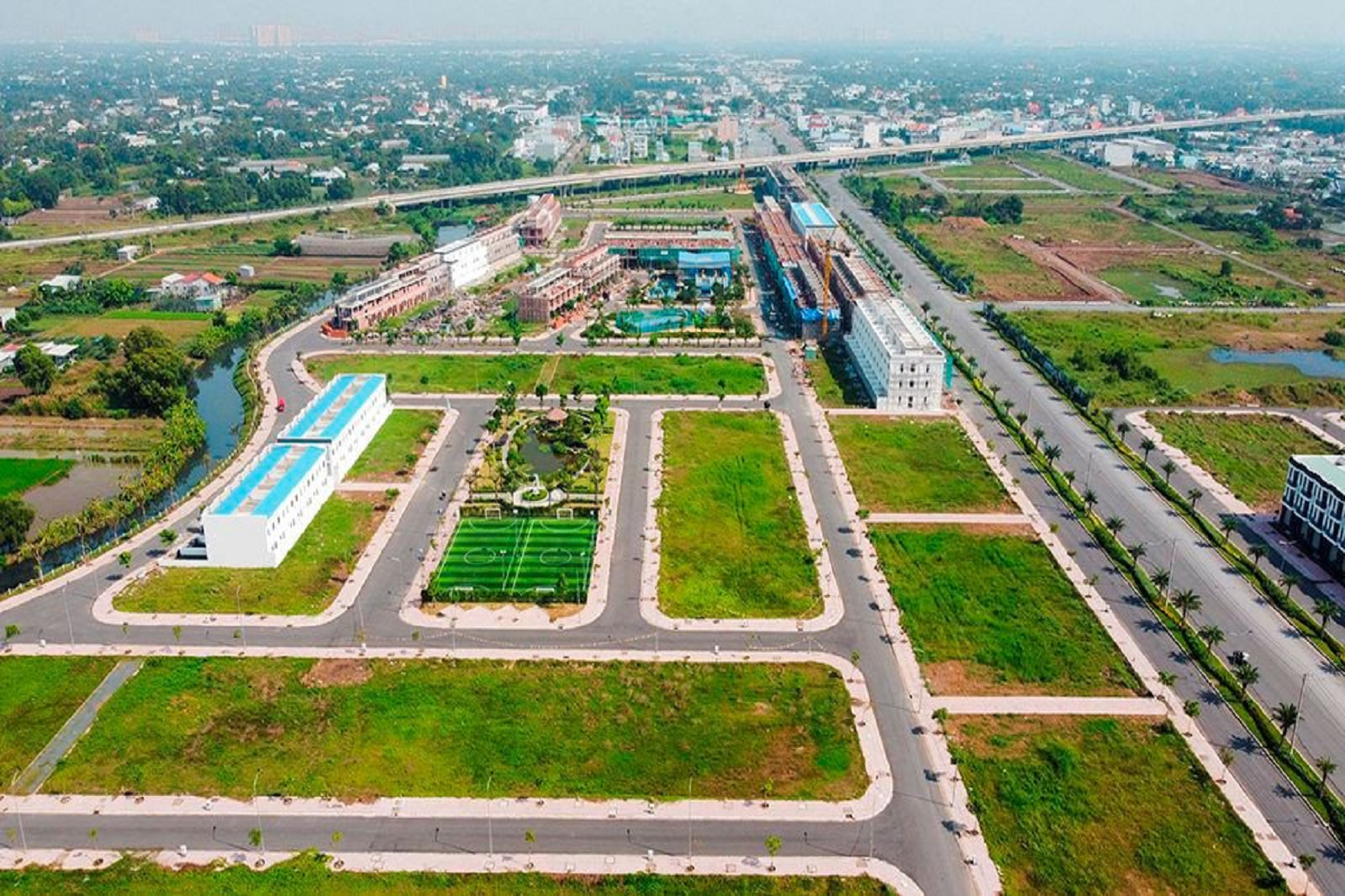
Completing land pricing policies in Vietnam
The Land Law 2013, Decree No. 44/2014/NĐ-CP on land prices, and Circular No. 36/2014/TT-BTNMT detailing land valuation methods, construction, adjustment ...
More details